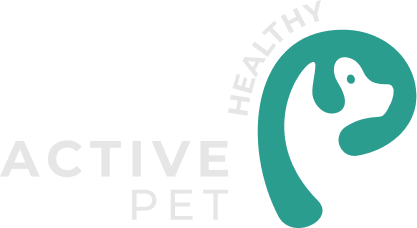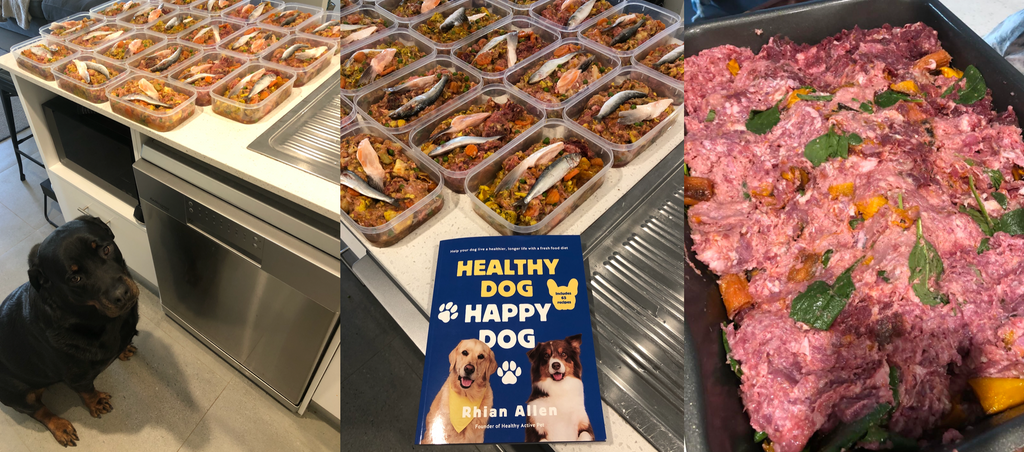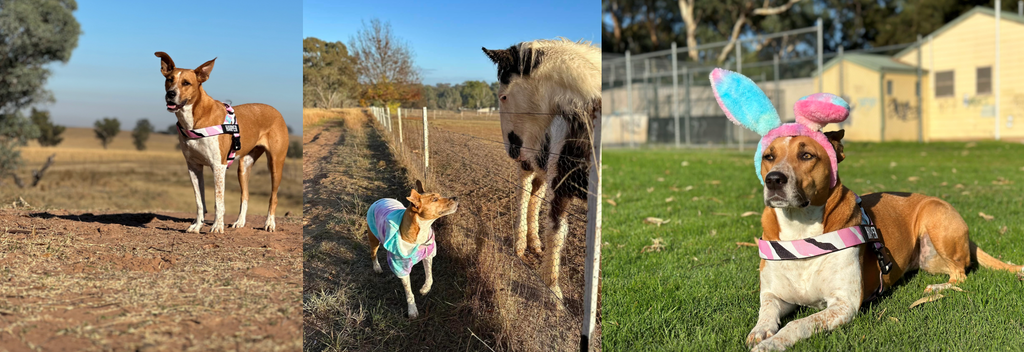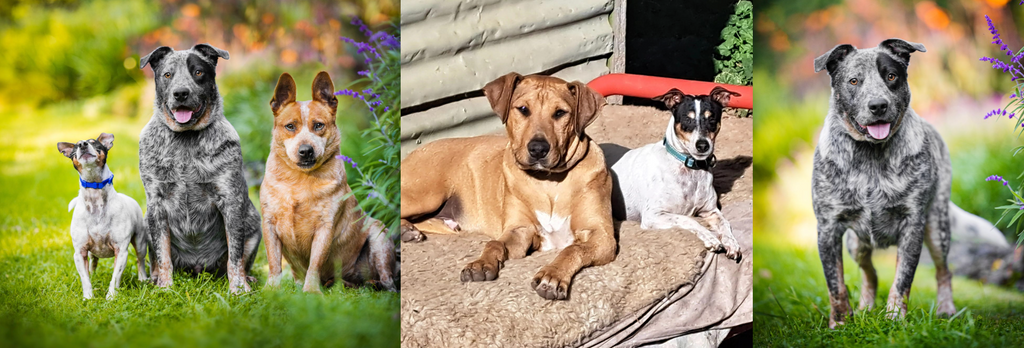
How To Clean Your Dog's Teeth
Giving our dogs a raw feeding diet can help improve their overall health, but it's just as important to maintain their dental health.
Thankfully, there are plenty of natural ways to keep our dogs' teeth clean and healthy. Today, we will explore six effective methods that can benefit your dog's dental hygiene while following a raw feeding diet.

Key Takeaways:
- Raw feeding diets can promote better dental hygiene in dogs.
- Regular teeth cleaning is essential to prevent dental problems like plaque buildup, gum disease, tooth decay, and bad breath.
- Brushing your dog's teeth is one of the most effective ways to maintain their dental health.
- Dental chews and toys, raw bones, and natural dental supplements can all aid in promoting dental health for dogs.
- Regular veterinary dental check-ups are crucial for identifying and addressing any dental issues early on.
Introduction to Raw Feeding Diet
We strongly believe that a balanced and natural diet is essential for dogs to maintain optimal health. Raw feeding, the practice of providing uncooked natural foods to dogs, is becoming increasingly popular.
This diet typically consists of raw meats, bones, fruits, and vegetables, which mimic the diet of a dog's wild ancestors. By providing your dog with a raw feeding diet, you can ensure they are receiving the necessary nutrients and proteins required for a healthy lifestyle.
The Importance of Dental Health for Dogs
As responsible pet owners, it's essential to understand the significance of dental health for dogs. Just like humans, dogs can accumulate plaque, tartar, and bad breath due to poor oral hygiene.
These issues, if not addressed, can eventually lead to gum disease, tooth decay, and other severe dental health problems. It's our responsibility to ensure that our furry friends receive proper dental care to keep their mouths healthy and pain-free.
Prevention is key when it comes to dental health for dogs. Regular dental check-ups, cleaning, and oral care routines, along with a balanced raw feeding diet, can dramatically benefit their overall health and well-being. Studies have also shown a positive correlation between dental health and a dog's life expectancy.
One way to ensure your dog's dental health is to incorporate natural dental care practices into their daily routine. By doing so, you can prevent costly dental treatments in the future and help your pet enjoy a happier, healthier life.
Brushing Your Dog's Teeth
Brushing your dog's teeth is one of the most effective ways to prevent dental problems and keep their teeth clean. To brush your dog's teeth properly, choose a toothbrush that is soft-bristled and appropriately sized for your dog. You can also use a finger brush that fits over your finger to clean their teeth.
It's important to use toothpaste designed specifically for dogs since human toothpaste can be harmful to them. We recommend using a flavoured toothpaste that your dog will enjoy.
When brushing your dog's teeth, be sure to focus on the back teeth, where plaque and tartar can build up quickly. Start by letting your dog sniff and taste the toothpaste, then gradually lift their lip to access their teeth.
If your dog is resistant to having their teeth brushed, try making it a positive experience by rewarding them with treats and praise. Start with short brushing sessions and gradually increase the time as your dog becomes more comfortable with the process.
Dental Chews and Toys
Keeping your dog's teeth healthy doesn't have to be a chore. In addition to regular brushing and raw bones, dental chews and toys can also help to reduce tartar and plaque buildup. Not only do they promote good dental hygiene, but they also provide a fun and entertaining way for your furry friend to keep their teeth in tip-top shape.
Raw Bones for Dental Health
If you're following a raw feeding diet for your furry friend, you may have come across the recommendation to incorporate raw bones into their diet. Raw bones can be an effective way to promote dental health in dogs, as they help scrape away plaque and tartar buildup naturally.
But which raw bones are suitable for your dog to chew on? It's essential to choose the right size and type of bone to ensure it's safe and beneficial for their dental health. Small, soft bones, such as chicken necks and wings, can be a good option, while large bones can be difficult to chew and pose a choking hazard.
When introducing raw bones into your dog's diet, start slowly and monitor their chewing habits to ensure they're chewing properly and not swallowing large pieces whole. You can also try holding the bone for your dog to chew on to prevent any mishaps.
Aside from promoting dental health, raw bones can also provide a source of nutrients and entertainment for your furry friend. It's essential to source high-quality bones from a reputable supplier to ensure their safety and nutritional value.
Regular Veterinary Dental Check-ups
We cannot overstate the importance of veterinary dental check-ups for your dog's dental health. Regular visits to your trusted veterinarian can help detect and address any dental problems early on, preventing them from progressing into more serious issues.
Dental check-ups typically involve a comprehensive physical examination of your dog's mouth and teeth. Your veterinarian may also recommend dental cleanings, which involve the removal of plaque and tartar from your dog's teeth using specialized equipment.
We advise scheduling annual dental check-ups for your furry friend. However, if your dog is prone to dental issues, your veterinarian may recommend more frequent visits.
Remember, your dog's dental health is an essential part of their overall well-being. Regular check-ups and cleanings can prevent dental problems and ensure your pet's comfort and happiness.
Conclusion
We hope that our article has provided you with valuable insights into maintaining your dog's dental health while following a raw feeding diet. By brushing your dog's teeth regularly, providing them with dental chews and toys, incorporating raw bones into their diet, using natural supplements and sprays, and scheduling regular veterinary dental check-ups, you can keep your furry friend's mouth in optimal condition.
Remember, good dental hygiene is paramount for your dog's overall well-being, and a healthy mouth leads to a happy and comfortable life for your beloved pet. If you have any questions or concerns about your dog's dental health, don't hesitate to consult your veterinarian for professional advice.
Thank you for reading our article, and we hope you found it informative and useful. Stay tuned for more pet care tips and tricks!
FAQ
What is a raw feeding diet for dogs?
A raw feeding diet involves providing dogs with uncooked, natural foods like raw meat, bones, fruits, and vegetables. This diet is believed to promote overall health and contribute to better dental hygiene.
Why is dental health important for dogs?
Maintaining good dental health is crucial for dogs as poor oral hygiene can lead to various dental problems, including plaque buildup, gum disease, tooth decay, and bad breath. Regular teeth cleaning is essential to prevent these issues and keep your dog's mouth in optimal condition.
How do I brush my dog's teeth?
Proper brushing is one of the most effective ways to clean your dog's teeth. Use a dog-specific toothbrush and toothpaste, and gently brush in circular motions. Take your time and make it a positive experience by rewarding your dog with treats or praise.
Are raw bones good for my dog's dental health?
Raw bones are a natural way to promote dental health in dogs. They help scrape away plaque and tartar while your dog chews. However, it's important to select appropriate types of raw bones and ensure they are offered safely.
How often should I schedule veterinary dental check-ups for my dog?
Regular veterinary dental check-ups are crucial for maintaining your dog's dental health. It is recommended to schedule visits as advised by your dog's veterinarian. They can identify and address any dental issues early on and perform professional dental cleanings.
Remember, a healthy mouth leads to a healthier overall well-being for your furry friend. If you have any other questions or concerns about your dog's dental health on a raw feeding diet, we are here to help.



